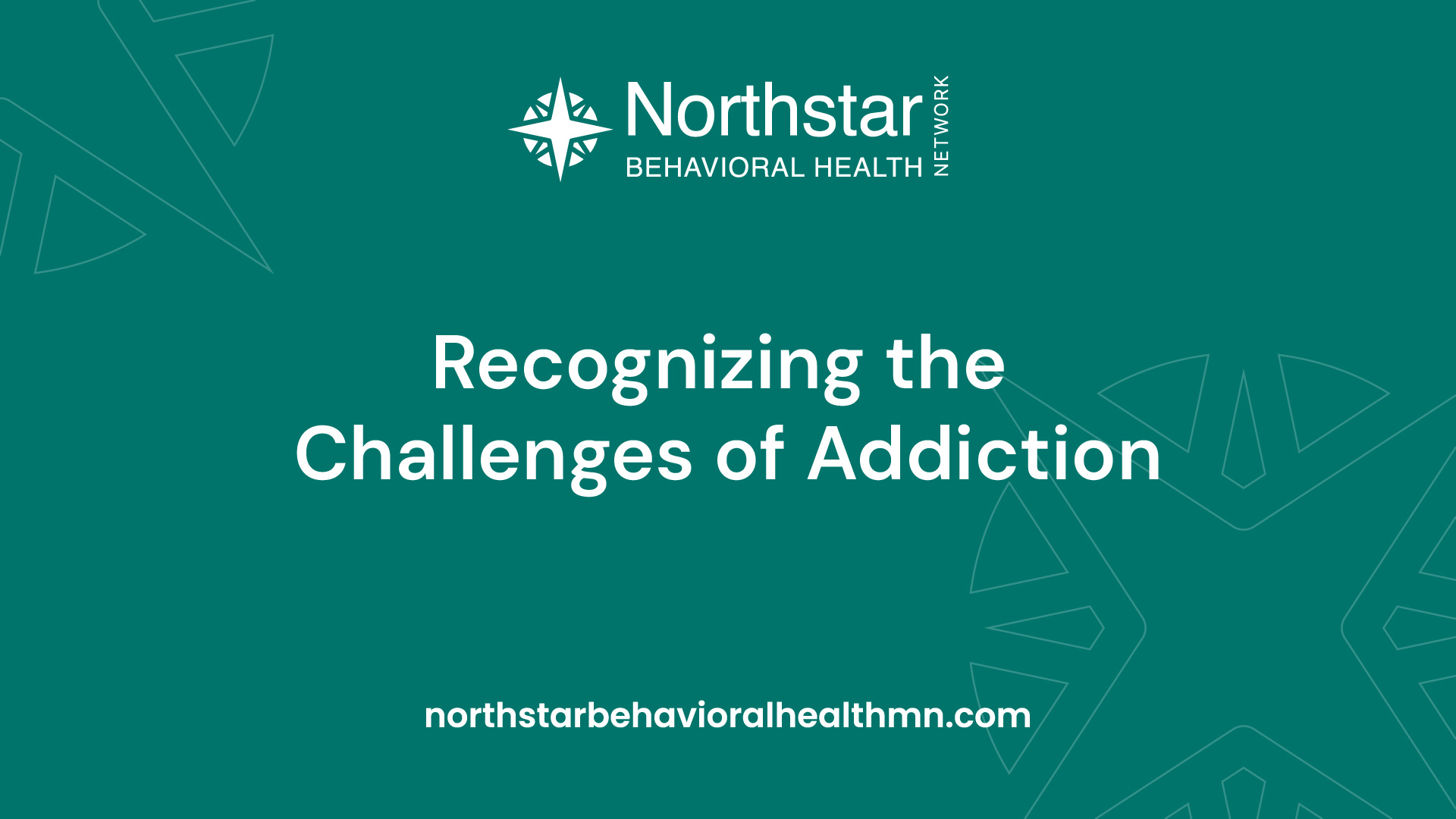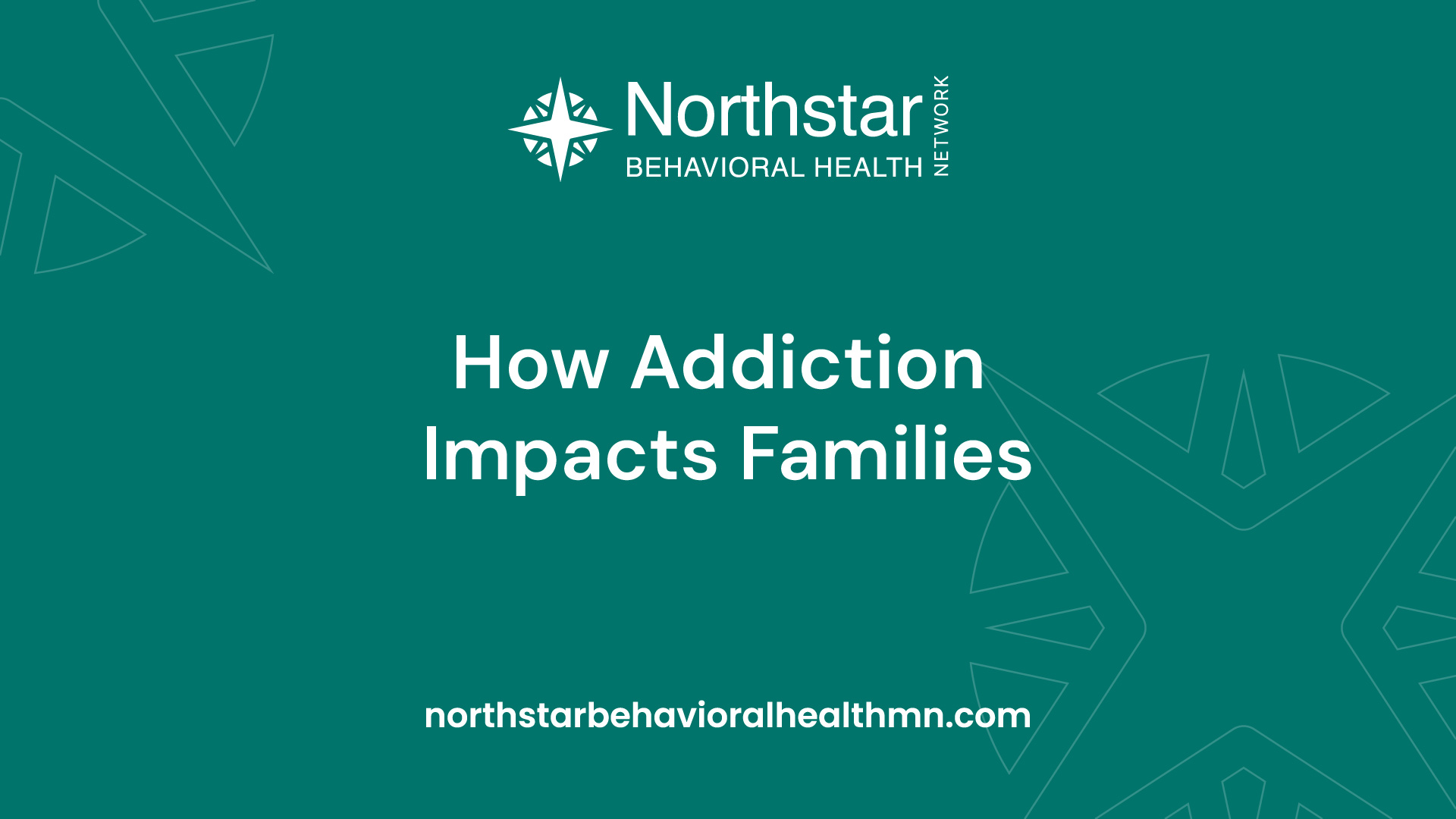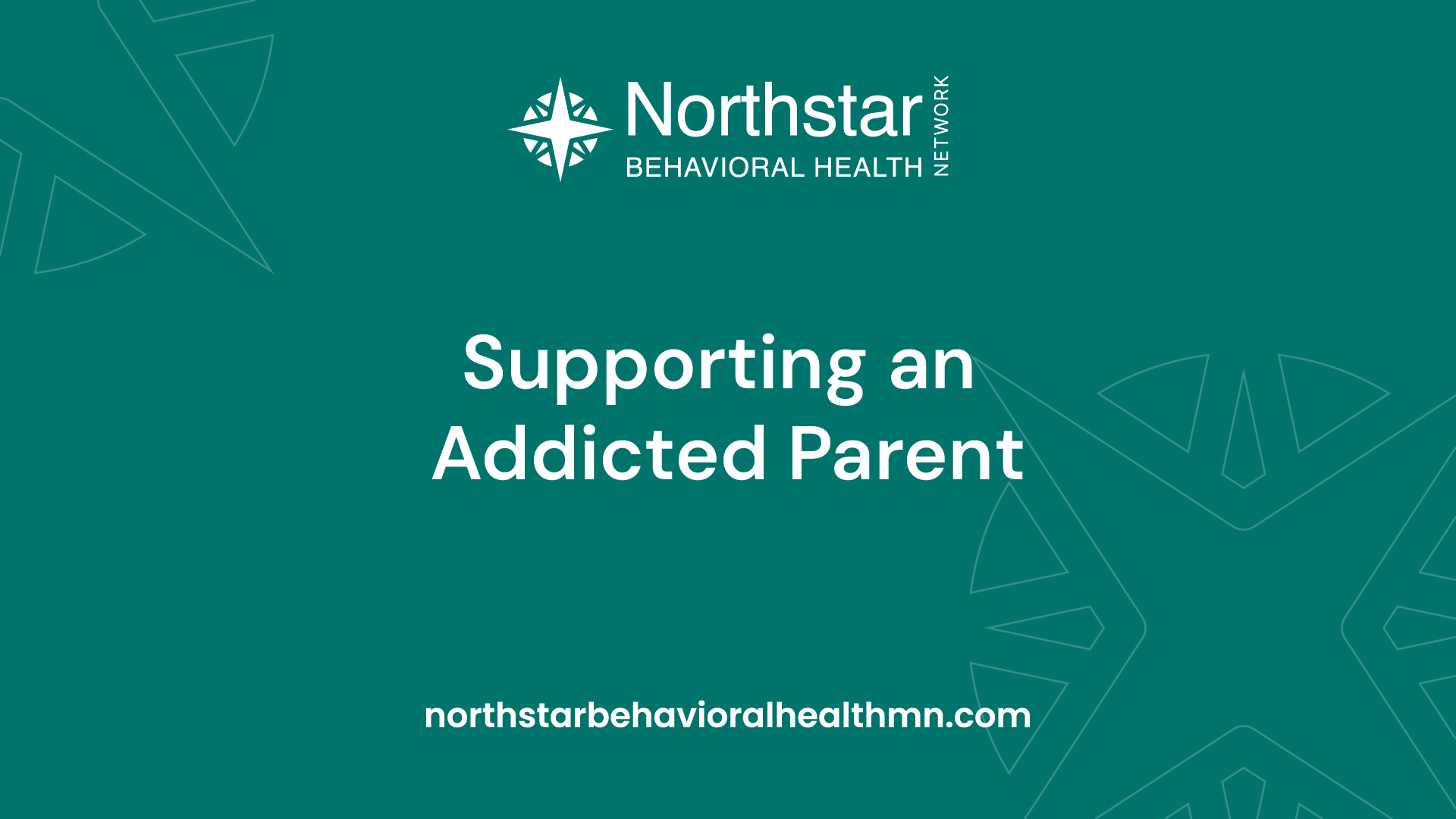August 27, 2024
Helping An Addicted Parent
Empower your addicted parent with these empowering methods.


Understanding Addiction
When faced with a parent who is struggling with addiction, it is essential to have a deep understanding of addiction itself. By recognizing the challenges of addiction and understanding how it impacts families, you can better navigate this difficult situation and provide the support your loved one needs.
Recognizing the Challenges of Addiction

Addiction is a complex and chronic disease that affects individuals physically, mentally, and emotionally. It is characterized by the compulsive use of substances despite negative consequences. Recognizing the challenges that addiction presents is crucial in order to empathize with your parent and approach the situation with compassion and understanding.
Some common challenges of addiction include:
- Physical Health Issues: Substance abuse can lead to a range of physical health problems, such as liver damage, heart disease, and respiratory issues. These health issues can have a significant impact on your parent's overall well-being and quality of life.
- Mental Health Disorders: Addiction often coexists with mental health disorders, such as depression, anxiety, or bipolar disorder. These conditions can complicate the recovery process and require comprehensive treatment approaches.
- Financial Struggles: Substance abuse can take a toll on your parent's finances, leading to financial instability, debt, and strained relationships due to borrowing money from friends or family members.
- Legal Consequences: Addiction can result in legal issues, such as arrests or DUI charges. Dealing with these legal consequences can add additional stress and complexity to your parent's life.
How Addiction Impacts Families

Addiction doesn't just affect the individual struggling with substance abuse; it also has a profound impact on their family members, including children. The effects can be far-reaching and include:
- Emotional Strain: Family members may experience a wide range of emotions, including sadness, anger, guilt, and fear. Witnessing a loved one struggle with addiction can be emotionally draining and overwhelming.
- Relationship Struggles: Addiction can strain relationships within the family. Trust may be broken, communication may become strained, and conflicts may arise due to the addiction-related behaviors of the parent.
- Role Reversal: In some cases, children may find themselves taking on adult responsibilities due to their parent's addiction. This role reversal can have long-lasting effects on their development and well-being.
- Financial Burden: Supporting a parent with addiction can place a financial burden on the family. Money may be spent on treatment programs, therapy, or legal fees, impacting the family's financial stability.
By understanding the challenges of addiction and its impact on families, you can approach the situation with empathy, patience, and a willingness to support your parent on their journey to recovery. It is important to remember that addiction is a treatable condition, and with the right support and resources, your parent can overcome this challenge. For more tips on supporting a loved one in recovery, check out our article on five tips to support your loved one in recovery.
Supporting an Addicted Parent

When a parent is struggling with addiction, it can be challenging for both the parent and their family. However, there are ways to provide support and encouragement during this difficult time. Here are three key ways to support an addicted parent:
Encouraging Open Communication
Open communication is essential when supporting an addicted parent. Encourage your parent to share their thoughts, feelings, and experiences without judgment. Create a safe and non-judgmental space where they can openly talk about their addiction and the challenges they are facing. Active listening is crucial during these conversations, as it shows your parent that you genuinely care about their well-being.
Additionally, communicating your concerns and expectations in a respectful and compassionate manner can help your parent understand the impact of their addiction on the family. Remember to use "I" statements to express your feelings and avoid blaming or criticizing them. By fostering open communication, you can build trust and strengthen your relationship with your parent.
Providing Emotional Support
Emotional support plays a vital role in helping an addicted parent. Addiction can be emotionally draining, and your parent may experience feelings of guilt, shame, and helplessness. Let them know that you are there for them and that they are not alone in their journey towards recovery.
Offering a listening ear and validating their emotions can provide immense comfort. Reassure your parent that you love them unconditionally and that you believe in their ability to overcome their addiction. Encourage them to seek professional help and remind them that their well-being is a priority.
If you or your parent need assistance finding appropriate resources, consider exploring therapy options or support groups together. For more information on therapy options, you can refer to our article on therapy options.
Offering Practical Help
Practical assistance can be invaluable for an addicted parent. Addiction can often disrupt daily routines and responsibilities, making it challenging for your parent to manage everyday tasks. Offering to help with practical matters, such as household chores, childcare, or transportation, can alleviate some of the stress and pressure they may be experiencing.
You can also assist your parent in researching treatment options, connecting with support groups, or finding an addiction counselor. Providing them with information and resources can empower them to take the necessary steps towards recovery. Remember to respect your parent's autonomy and involve them in decision-making processes.
By encouraging open communication, providing emotional support, and offering practical help, you can make a significant difference in supporting your addicted parent. Remember to take care of yourself as well and seek support from other family members, friends, or support groups. Supporting an addicted parent can be challenging, but with love, empathy, and understanding, you can help them on their journey to recovery.
Seeking Professional Guidance
When supporting an addicted parent, seeking professional guidance can be instrumental in aiding their recovery journey. Professional help can provide the necessary expertise, resources, and support to navigate the challenges of addiction. Two key avenues to explore are therapy options and support groups.
Exploring Therapy Options
Therapy can play a crucial role in helping both the addicted parent and their family members cope with the effects of addiction. There are various therapy options that can be considered:
- Emotional Strain: Family members may experience a wide range of emotions, including sadness, anger, guilt, and fear. Witnessing a loved one struggle with addiction can be emotionally draining and overwhelming.
- Relationship Struggles: Addiction can strain relationships within the family. Trust may be broken, communication may become strained, and conflicts may arise due to the addiction-related behaviors of the parent.
- Role Reversal: In some cases, children may find themselves taking on adult responsibilities due to their parent's addiction. This role reversal can have long-lasting effects on their development and well-being.
- Financial Burden: Supporting a parent with addiction can place a financial burden on the family. Money may be spent on treatment programs, therapy, or legal fees, impacting the family's financial stability.
Considering Support Groups
Support groups offer a unique form of assistance by connecting individuals who have similar experiences with addiction. These groups can provide a sense of belonging and understanding, as well as a platform for sharing struggles, successes, and resources. Some popular support groups for addiction include:
Joining a support group can provide the addicted parent with a sense of community, encouragement, and accountability. It is important to research different support groups and find one that aligns with their specific needs and beliefs.
By exploring therapy options and considering support groups, you can help your addicted parent access the professional guidance they need to navigate the challenges of addiction. Remember, recovery is a journey that requires ongoing support and understanding. Encourage your loved one to take advantage of these resources and be there to support them every step of the way.
Setting Boundaries
Supporting an addicted parent can be challenging, but setting boundaries is an essential part of the process. Establishing healthy limits and practicing self-care are key aspects of creating a supportive environment for both yourself and your loved one in recovery.
Establishing Healthy Limits
Setting boundaries helps to maintain a healthy dynamic between you and your addicted parent. It's important to establish clear expectations and limits on what behavior is acceptable and what is not. By doing so, you can create a structure that promotes accountability and encourages positive change.
Here are some steps to help you establish healthy limits:
- Define your boundaries: Reflect on what you are comfortable with and what you find unacceptable in your relationship with your addicted parent. Clearly communicate these boundaries to them in a respectful and firm manner.
- Stick to your boundaries: Consistency is key when it comes to setting boundaries. Be firm in enforcing the limits you have established, even if it may be difficult at times. This helps to foster a sense of stability and encourages your loved one to take responsibility for their actions.
- Seek support: Reach out to a therapist, support group, or counselor who specializes in addiction to guide you through the process of setting and maintaining healthy boundaries. They can provide valuable insights and strategies to navigate challenging situations.
Remember, setting boundaries is not about punishing or controlling your loved one. It is about ensuring your own well-being while encouraging their recovery journey. By establishing healthy limits, you can create a more balanced and supportive environment.
Understanding Self-Care
Supporting an addicted parent can take a toll on your own mental and emotional well-being. Practicing self-care is essential to maintain your own health and resilience throughout the process.
Here are some self-care strategies to consider:
- Prioritize your needs: Make time for activities that bring you joy and help you relax. This could include engaging in hobbies, spending time with supportive friends or family members, or practicing mindfulness and self-reflection.
- Set boundaries for yourself: Just as you set boundaries with your addicted parent, it's important to establish boundaries for yourself. This may involve taking breaks when needed, saying no to additional responsibilities, or seeking support from others when you feel overwhelmed.
- Seek support: Don't hesitate to reach out for help and support. Joining a support group for individuals who have loved ones struggling with addiction can provide a safe space to share experiences and gain valuable insights. Additionally, consider seeking professional counseling or therapy to help navigate the emotional challenges you may encounter.
- Take care of your physical health: Maintaining a healthy lifestyle can positively impact your overall well-being. Ensure you are getting enough sleep, eating nutritious meals, and engaging in regular exercise. Taking care of your physical health can provide you with the energy and resilience needed to support your loved one.
Remember, self-care is not selfish—it is an essential part of being able to support your addicted parent effectively. By prioritizing your own well-being, you can better show up for them and create a more supportive environment for their recovery.
By establishing healthy limits and practicing self-care, you can create a solid foundation for supporting your addicted parent through their recovery journey. Remember to be patient with yourself and your loved one, as the process takes time and effort.
Celebrating Progress
Supporting a loved one in recovery from addiction is a journey that requires patience, understanding, and continuous support. As they take steps towards a healthier and drug-free life, celebrating their progress is essential for their motivation and overall well-being. Here are two important ways to acknowledge their achievements and encourage their continued growth.
Acknowledging Small Victories
Recovery is a process that consists of small steps and milestones. Acknowledging and celebrating these small victories is crucial in boosting your loved one's confidence and self-esteem. By recognizing their accomplishments, you show them that their efforts are valued and that you are proud of their progress.
Here are some small victories worth celebrating:
Remember to be genuine and specific in your praise. Let them know exactly what you appreciate and admire about their progress. This will reinforce their commitment to recovery and motivate them to continue moving forward.
Encouraging Continued Growth
While celebrating small victories is important, it is equally crucial to encourage your loved one to keep growing and striving for long-term recovery. Recovery is an ongoing journey, and there is always room for personal growth and improvement.
Here are some ways to encourage their continued growth:
- Set realistic goals: Help your loved one establish realistic goals that align with their recovery journey. Encourage them to break down these goals into smaller, manageable steps that they can work towards.
- Provide ongoing support: Let your loved one know that you are there for them through the ups and downs of their recovery. Offer a listening ear, provide emotional support, and be available to help them navigate challenges.
- Promote self-reflection: Encourage your loved one to engage in self-reflection and self-awareness. This can be done through journaling, therapy, or attending support group meetings. Self-reflection allows them to identify areas for growth and take necessary steps towards personal development.
- Celebrate milestones: In addition to acknowledging small victories, make sure to celebrate significant milestones in their recovery journey. Whether it's a year of sobriety or completing a treatment program, these milestones deserve recognition and celebration.
By celebrating progress and encouraging continued growth, you play a vital role in supporting your loved one's recovery. Remember to be patient, understanding, and empathetic throughout the process. For more tips on supporting your loved one in recovery, check out our article on five tips to support your loved one in recovery.
Fostering a Supportive Environment
When supporting an addicted parent on their journey to recovery, creating a supportive environment is essential. This environment should provide a safe and understanding space for the parent, while also promoting healing and recovery. Here are two key aspects to consider when fostering such an environment:
Creating a Safe and Understanding Space
Creating a safe and understanding space is crucial for an addicted parent's recovery. It involves establishing an environment where they feel comfortable and supported, free from judgment or criticism. Here are some strategies to create this space:
- Practice active listening: Take the time to actively listen to your loved one without interruption or judgment. Let them express their thoughts, feelings, and concerns openly.
- Show empathy: Understand the challenges your loved one is facing and validate their experiences and emotions. Let them know that you are there for them and that their feelings are valid.
- Avoid enabling behaviors: While it's important to be supportive, it's equally important to set boundaries and avoid enabling their addiction. Encourage them to take responsibility for their actions and seek professional help.
- Offer encouragement: Provide encouragement and praise for their efforts and achievements, no matter how small. Celebrating milestones and progress can boost their motivation and confidence.
Promoting Healing and Recovery
Promoting healing and recovery involves creating an environment that supports and encourages your loved one's journey towards sobriety. Here are some ways to promote healing and recovery:
- Educate yourself: Learn about addiction, the recovery process, and available resources. This will help you better understand what your loved one is going through and enable you to provide informed support.
- Encourage healthy habits: Promote healthy habits such as regular exercise, proper nutrition, and adequate sleep. These habits can contribute to overall well-being and support the recovery process.
- Help them find support: Encourage your loved one to engage in support groups or therapy sessions. These resources provide a sense of community, guidance, and accountability.
- Create a drug-free environment: Remove any substances or triggers from the home that may tempt your loved one or hinder their recovery. This includes getting rid of alcohol, drugs, and paraphernalia.
- Encourage self-care: Emphasize the importance of self-care and stress management. Encourage activities such as meditation, journaling, or engaging in hobbies that promote relaxation and personal growth.
By fostering a supportive environment that prioritizes safety, understanding, and healing, you can significantly contribute to your addicted parent's recovery journey. Remember, recovery is a process that requires patience, compassion, and ongoing support.

.jpg)




.jpg)

